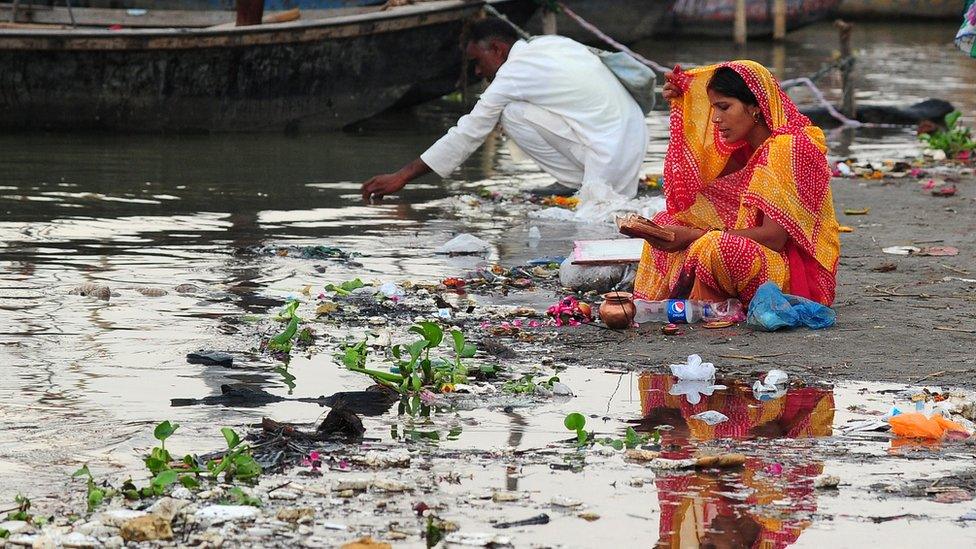India court gives sacred Ganges and Yamuna rivers human status
- Published

The Ganges and Yamuna rivers are worshipped by millions, but they are also heavily polluted
A court in northern Indian has given the Ganges and Yamuna rivers the status of "living human entities".
The high court in the Himalayan state of Uttarakhand said this would help in the "preservation and conservation" of the highly polluted rivers.
It added that the "legal status" ensures that polluting the rivers would now amount to harming a human being.
Both rivers are considered sacred in India and are considered goddesses by the majority Hindu population.
The ruling comes a week after the Whanganui River in New Zealand became the first in the world to be granted the same legal rights as a person.
The court said in its ruling that Hindus had "deep faith" in the two rivers and they "collectively connect with them".
"The rivers are central to the existence of half of the Indian population and their health and well being. They have provided both physical and spiritual sustenance to all of us from time immemorial," it added.
It went on to add that both rivers had become heavily polluted due to industrialisation and rapid urbanisation.
Two top state officials have been appointed as the "legal guardians" of the rivers and will represent their rights.
Activists say the order is likely to fast track efforts to clean the rivers.